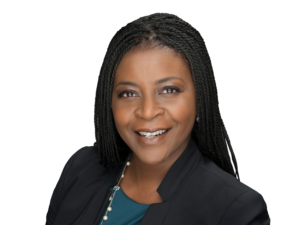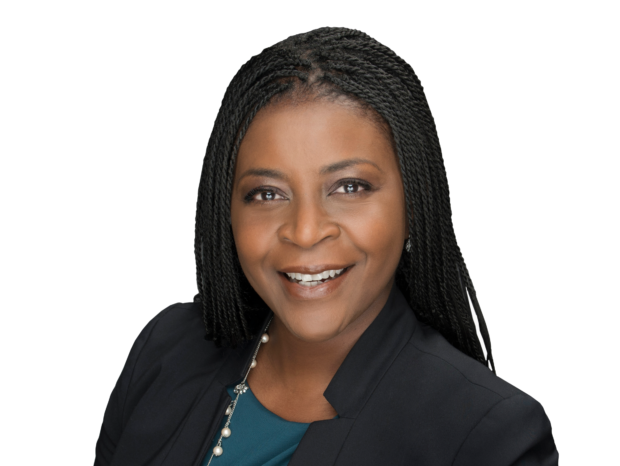Holding the position of chief culture officer is no easy task. It takes flexibility, empathy and an inherent ability to listen—to both what is said and unsaid.
Executive Summary
Not unlike the cultures of countries around the world, the cultures within companies evolve over time, says Ivy Kusinga. Here, the chief culture officer of Chubb explains that while some may think of culture as soft and fuzzy concepts, the global insurer pays strong attention to its strong culture of accountability, with leaders taking a personal sense of ownership of it. She also explains her unconventional role, describing the need to be at once dispassionate and empathetic and to rely on deep listening skills to support her colleagues.With a background in retail banking, Chief Culture Officer and Senior Vice President Ivy Kusinga stumbled into the insurance field. She began as a project manager with Chubb’s Bermuda operation in 2000, moving up the ranks to work in the areas of training and development, talent and human resources. She said cultivating culture has been vital to the success of acquisitions over the years and is what propelled the global insurer’s growth.
With 31,000 employees operating in 54 countries, ensuring the company culture is the same in the U.S as it is in other countries can be a challenge. Defining what culture means becomes increasingly important, she said.
“The definition I would use is that we are predominantly focused on who we are, what characterizes us—our DNA as a company, what behaviors do we expect for each other as colleagues, and how [do] we really make decisions as a business,” Kusinga explained. “Collectively, that tripod—who we are, what behaviors we expect, and what we reward and recognize—really creates how we view culture. For us, it’s really about the coded wisdom that is developed through shared experiences and shared values.”
Chubb views culture and business as inseparable. Although there will be cultural nuances based on regional and geographic differences, she said, the core underpinnings of culture will be the same. She credits CEO Evan Greenberg with setting the tone that leaders ought to exhibit—a personal sense of ownership of their culture.
“Collectively, obviously we take a long-term view because culture’s not static. It evolves over time,” Kusinga said. “I think especially post-merger, I am challenged to integrate and maintain the best traits of culture. From a day-to-day experience, when I travel, when I look for the core underpinnings of our culture, again, I restate the things that matter to us.”
 A challenge to maintaining culture is the tendency to expect things to return to normal in the short term, she said.
A challenge to maintaining culture is the tendency to expect things to return to normal in the short term, she said.
“Acquisitions and mergers, even at their best, will cause a measure of disruption,” Kusinga said. “That disruption is not just to your practices as a company, but it’s frankly to the working climate. That disruption, for us, we took on as a challenge because it was how do we work through the myriad integration-related issues with a strong degree of resiliency to get to a stable or normal state. That journey past that merger—the ACE and Chubb merger—was really about that journey to get to the state of stable, the state of normal.”
Culture isn’t easily integrated, she said. “It really evolves over time for any group of people,” she said. “Companies are not unlike countries…where if you really think about how culture evolves over time, it can take years sometimes to really change aspects of culture.”
It can get lost amid business aspirations.
“There is a tendency to think about culture as the softer side of the business,” said Kusinga. “You often think about it as ‘it’s so nuanced’ or ‘it’s just fuzzy,’ so you really just underestimate paying attention to it. We did not underestimate culture. In fact, we pay very strong attention to it.”
Attracting Talent
Chubb, she said, is committed to attracting and retaining people who really love what they do.
“We aspire to be a place that attracts and retains the best talent. That’s what I’m really focused on,” Kusinga said.
The insurer values a variety of attributes in potential new hires. She explained that people who want to help others and have a deep service orientation are invaluable, as are team players and problem solvers.
“We have a culture…of high accountability,” she said. “I always try to look for that. Do people take responsibility for successes but frankly, even more importantly, for failures?”
Because Chubb offers a range of products, Kusinga said virtually any background could be valuable to the insurer.
 “Collectively, that tripod—who we are, what behaviors we expect, and what we reward and recognize—really creates how we view culture. For us, it’s really about the coded wisdom that is developed through shared experiences and shared values.”
“Collectively, that tripod—who we are, what behaviors we expect, and what we reward and recognize—really creates how we view culture. For us, it’s really about the coded wisdom that is developed through shared experiences and shared values.”Someone interested in a job at Chubb or any other insurer should observe the company.
“If you’re really thinking about joining a company, you observe obviously their financial position, you observe how they’re performing as a financial entity in terms of how they treat their customers. I also think you really get more of that insider perspective by exposing yourself to people who are actually working actively in the organization,” Kusinga said.
Flexibility Key to the Role
As chief culture officer, she doesn’t rely on just one leadership style.
“I think in a leadership role like this, it’s probably prudent to use a variety of leadership styles because I am dealing with so many people. I’m dealing with senior executives within Chubb, I’m dealing with managers, but I’m also really dealing with…any colleague that is part of the organization,” she said. “I think if I were to attribute a style, I would like to think I’m viewed as a pragmatic leader in approach. I think I probably revert to using an involved, results-orientated style, having a very keen interest in supporting colleagues.”
Kusinga’s work days can be quite varied. Her days might be filled with travel, talent management, overseeing the insurer’s execution on diversity and inclusion, and conducting presentations both internally and externally for customers and in external forums.
“It’s one of the reasons I really love what I do. I would say the overarching focus is to promote a self-propelling culture and a unified, vibrant culture, which distinguishes Chubb not just within a competitive space, our peer group, but certainly externally,” she said.
The qualities she views as invaluable for a chief culture officer to possess are unlikely to be part of its job description.
“I think you have to have the ability to accept that there are multiple truths to people’s experiences in an organization and that one truth doesn’t negate the other. That is really something that comes up for me constantly, because I think for most people, it’s simpler to accept that there is one truth,” Kusinga said.
Identifying subtleties is important, too.
“It’s the ability to read nuance beyond what is said, but actually even more importantly what’s unsaid, because there’s a big aspect of this work that is really about the human psychology. It’s what they are feeling and how they express that in their interactions. You’ve got to be quite a deep listener,” she said.
One must also remain dispassionate yet empathetic, Kusinga said.
“You want a culture, obviously, that people want to lean into, so people should be knocking on my door,” she explained. “People should be writing to me; people should feel like I’m very approachable. But to do this job well, I fundamentally believe part of the skill is to be dispassionate enough so that you can derive what are the priorities in how you’re listening without alienating the people you’re here to serve.”
In terms of her career, Kusinga said she has kept an open mind.
“When I really look at my trajectory with Chubb, I have held at least six roles over my career. I think what’s common is I’ve always been open to trying something new, and frankly something unconventional, because the cultural role is quite an unconventional role,” she said. “I think that remains true for me individually, this ability to just say yes to something that may not be the perfect thing or may look unusual.”
Kusinga’s definition of success is derived internally.
“I think only you can define that for yourself. For me, it’s about hopefully making a positive impact, not just in a professional way in terms of the way I contribute to Chubb, to my peers and my colleagues within this organization, but it’s also in very personal terms,” she said.





















 What Analysts Are Saying About the 2026 P/C Insurance Market
What Analysts Are Saying About the 2026 P/C Insurance Market  Nearly 26.2M Workers Are Expected to Miss Work on Super Bowl Monday
Nearly 26.2M Workers Are Expected to Miss Work on Super Bowl Monday  Insurance Groundhogs Warming Up to Market Changes
Insurance Groundhogs Warming Up to Market Changes  Preparing for an AI Native Future
Preparing for an AI Native Future 





